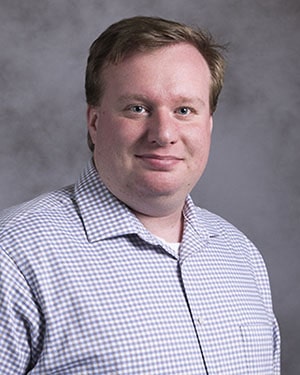
Nicholas Shaman
Assistant Professor of Psychology,
College of Human Sciences and Humanities
Contact number: 281-283-3386
Email: Shaman@uhcl.edu
Office: SSCB 2109.15
Biography
Nicholas Shaman, Ph.D was born and raised in New York City. He attended Boston University for his bachelor's degree and the University of California, Riverside for his Ph.D. Dr. Shaman's research examines the social and cultural influences on young children's concept development. Specifically, he examines how young children develop and learn religious concepts.
Areas of Expertise
- Cognitive Development in Early Childhood
- Development of Social Cognition
- Development of Religious Cognition
- Embodied Cognition and Development
Publications
Shaman, N. J., Saide, A. R., Lesage, K. A., & Richert, R. A. (2016). Who cares if I stand on my head when I pray? Ritual inflexibility and mental-state understanding in preschoolers. Research in the Social Scientific Study of Religion, 27, 122-139.
Richert, R. A., Shaman, N. J., Saide, A. R., & Lesage, K. A. (2016). Folding your hands helps God hear you: Prayer and anthropomorphism in parents and children. Research in the Social Scientific Study of Religion, 27, 140–157.
Richert, R. A., Saide, A. R., Lesage, K. A., & Shaman, N. J. (2017). The role of religious context in children's differentiation between God's mind and human minds. British Journal of Developmental Psychology, 35, 37-59.
Courses (Current Academic Year)
Introductory Psychology
Psychological Methods - Statistics
Life Span Development
Research Projects
My research examines the social and cultural influences on young children’s concept development. The goal of my research is to disentangle the influences that contribute to concept development, given that children’s own experiences, direct and indirect instruction, and maturation contribute to development. To do this, I specifically focus on religious concepts. Children’s understanding of religion affords the ability to explore how children develop concepts without the influence of direct observation and experience. By focusing on the development of religious concepts, my research naturally controls for children’s direct observation and experience of phenomena and highlights the influences of the social and cultural environment on children’s concept development. My research focuses on two major influences on children’s developing religious concepts: children’s participation in cultural activities and children’s social cognitive understanding. These two influences interact with one another as well, therefore, my research paradigm examines both simultaneously.
Awards and Accomplishments
Graduate Dean’s Dissertation Research Grant, University of California, Riverside, September 2014 – April 2015
New directions in the study of prayer research initiative: The role of prayer in the development of religious cognitions. Social Science Research Council, September 2012 – August 2014; Position: Co-PI (with R. Richert, PI)
Graduate Research Mentorship Program Fellowship, University of California, Riverside, Winter, 2013
American Psychological Association, Division 36, Research Seed Grant, June 2011
Chancellor’s Distinguished Fellowship Award, University of California, September 2009 – June 2010






